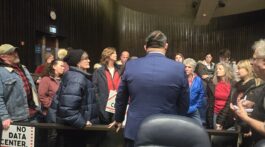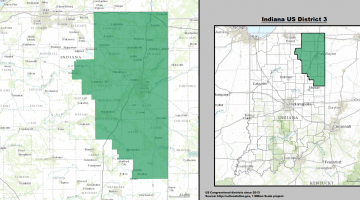by David Ober
| Judge Justin McAdam of the Indiana Tax Court recently issued a significant ruling in the case of Dr. Tulsi and Kamini Sawlani v. Lake County Assessor, addressing the constitutionality of statutory tax caps under the Indiana Constitution.
The Sawlanis, owners of a property in Crown Point, challenged the statutory provision that limits the 1% tax cap to only one acre of land surrounding their residence. They argued that this limitation is unconstitutional and that the cap should apply to their entire 3.981-acre property. The Indiana Tax Court agreed with the Sawlanis, concluding that the Indiana Constitution does not permit a fixed one-acre limitation. McAdam emphasized that the Indiana Constitution’s tax caps are intended to apply to all tangible property used as a principal place of residence without a specific size limitation. He stated, “The Constitution does not permit a fixed one-acre limitation on the amount of land eligible for the 1% t tax cap.” This ruling overturned the Indiana Board of Tax Review’s previous decision, which upheld the statutory limitation. The decision has significant implications for property tax assessments in Indiana. McAdam noted that the language of the Constitution requires the 1% cap to be applied broadly to property used as a principal place of residence, including curtilage, without imposing an arbitrary size restriction. He cited the constitutional mandate, stating, “The constitutional tax caps establish strict limitations on the state’s ability to tax property, setting a ceiling on the amount of tax that can be levied and a floor on the type of property entitled to the benefit of each cap.” This ruling will have distinct impacts on property owners based on their land size. For those with less than one acre, the decision has little direct effect, as their property already falls within the 1% tax cap without contention. However, property owners with more than one acre stand to benefit significantly; the decision removes the statutory one-acre limitation, potentially qualifying their entire property for the cap. This can result in substantial tax savings for owners of larger residential properties. The case has been remanded to the Indiana Board of Tax Review for further review to determine the eligibility of the Sawlanis’ additional acreage for the one percent tax cap. Given the significant implications of Judge McAdam’s decision on property tax assessments and potential tax relief for larger properties, it is likely that the Lake County Assessor will appeal the ruling. The appeal process could further clarify the application of constitutional tax caps in Indiana. |
David Ober is the Senior VP, Business Operations & Finance, for the Indiana Chamber.











